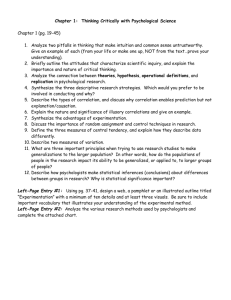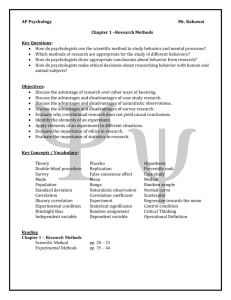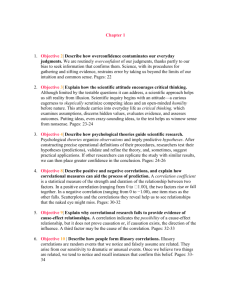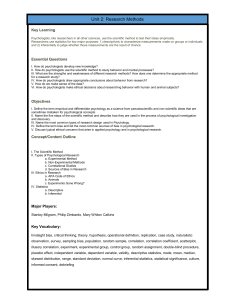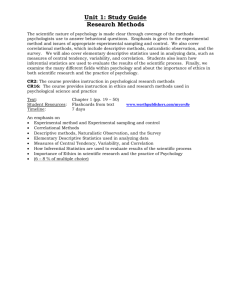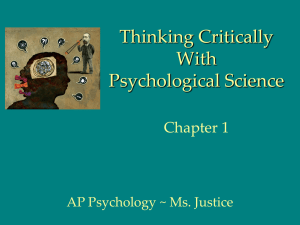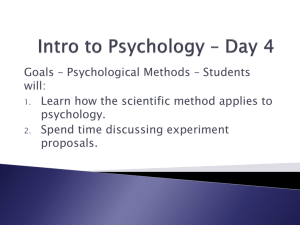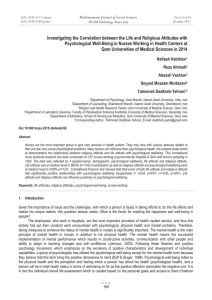STUDY GUIDE: UNIT 2 – RESEARCH METHODS AP Psychology In
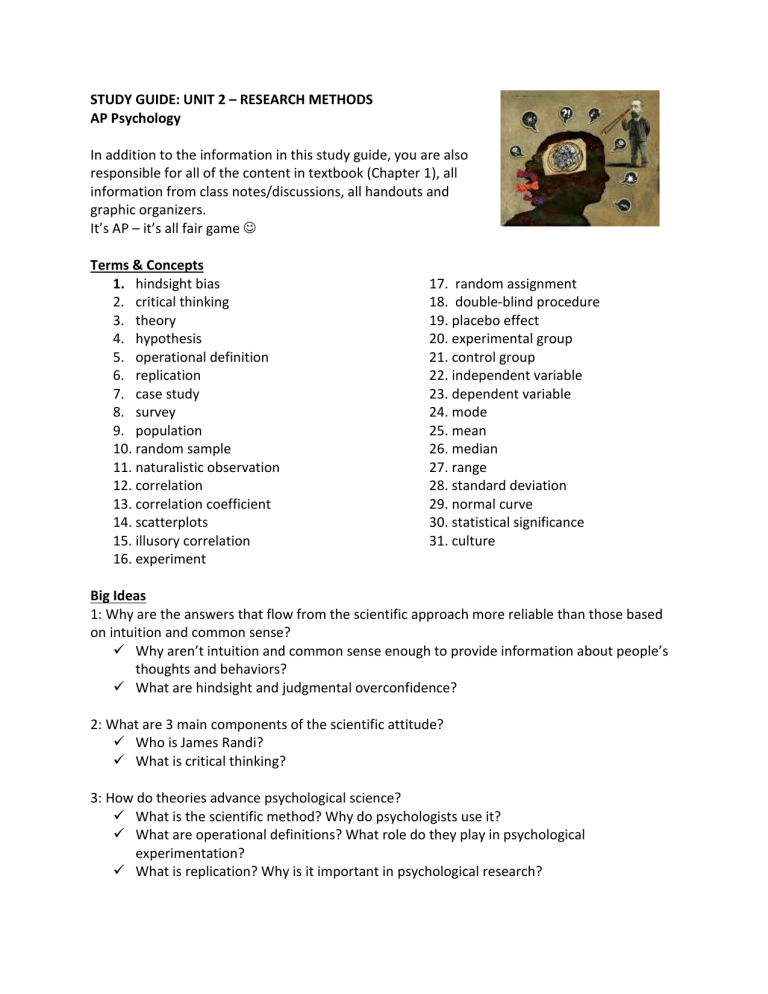
STUDY GUIDE: UNIT 2 – RESEARCH METHODS
AP Psychology
In addition to the information in this study guide, you are also responsible for all of the content in textbook (Chapter 1), all information from class notes/discussions, all handouts and graphic organizers.
It’s AP – it’s all fair game
Terms & Concepts
1.
2.
3.
4.
5.
6.
hindsight bias critical thinking theory hypothesis operational definition replication
17.
random assignment
18.
double-blind procedure
19.
placebo effect
20.
experimental group
21.
control group
22.
independent variable
23.
dependent variable
24.
mode
7.
case study
8.
survey
9.
10.
11.
12.
13.
14.
population random sample naturalistic observation correlation correlation coefficient scatterplots
25.
mean
26.
median
27.
range
28.
standard deviation
29.
normal curve
30.
statistical significance
31.
culture 15.
illusory correlation
16.
experiment
Big Ideas
1: Why are the answers that flow from the scientific approach more reliable than those based on intuition and common sense?
Why aren’t intuition and common sense enough to provide information about people’s thoughts and behaviors?
What are hindsight and judgmental overconfidence?
2: What are 3 main components of the scientific attitude?
Who is James Randi?
What is critical thinking?
3: How do theories advance psychological science?
What is the scientific method? Why do psychologists use it?
What are operational definitions? What role do they play in psychological experimentation?
What is replication? Why is it important in psychological research?
4: How do psychologists observe and describe behavior?
What are the three descriptive methods used by psychologists? Be able to define and provide examples of each.
How can wording affect survey results?
What is a random sample? Why is it important in psychological research?
5: What are positive and negative correlations, and why do they enable prediction but not cause-effect explanation?
What is a scatterplot? Why is it important in psychological research?
Understand and know the difference between a positive correlation, a negative correlation, and no correlation.
Can correlation determine causation?
6: What are illusory correlations?
Why do people often perceive order in random events?
7: How do experiments, powered by random assignment, clarify cause and effect?
What role do experiments play in psychological research?
What are double-blind procedures and random assignment? Why is they important in psychological research?
Understand the difference between an independent variable and a dependent variable, and be able to identify each in a given example.
8: How can we describe data with measures of central tendency and variation?
What are the three measures of central tendency?
What are the two measures of variation?
What is a normal curve?
9: What principles can guide our making generalizations from samples and deciding whether differences are significant?
10: Can laboratory experiments illuminate everyday life?
11: Does behavior depend on one’s culture and gender?
12: Why do psychologists study animals, and is it ethical to experiment on animals?
13: Is it ethical to experiment on people?
14: Is psychology free of value judgments?
